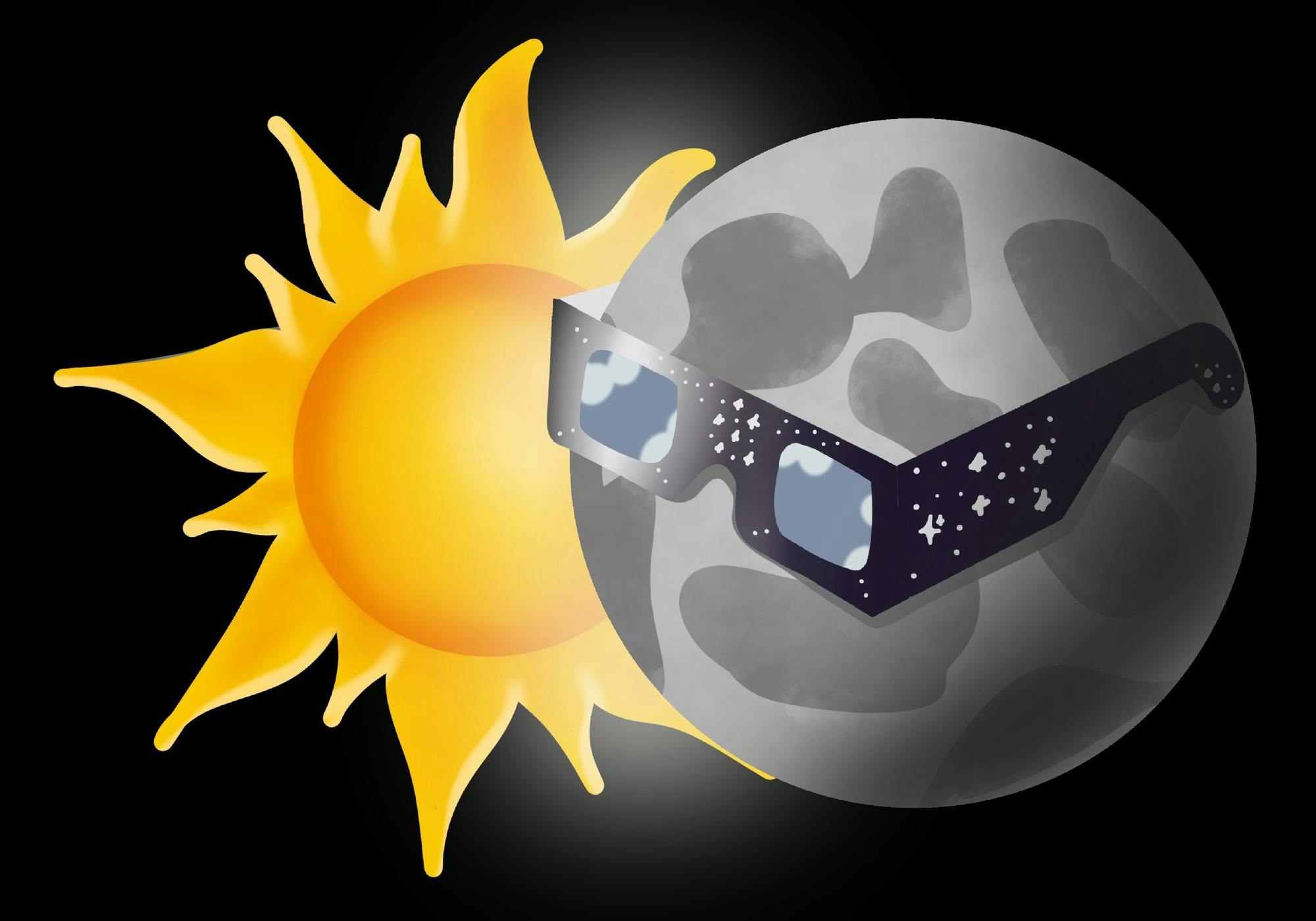On April 8, a rare astronomical phenomenon will take place over North America: a total solar eclipse.
Michigan State University Assistant Professor in the Department of Earth and Environment Sciences Seth Jacobson, a planetary scientist, explained that a solar eclipse occurs when the sun, moon and earth are in alignment, with the moon between the earth and the sun.
"What makes a total eclipse special is that the moon is just large enough in the sky to completely occult the light of the sun, if it lines up perfectly," Jacobson said.
MSU Astronomy Club Treasurer and astrophysics and computational mathematics junior Aditya Kalakuntla said that while annular or partial solar eclipses happen often with many planets, totality is something that is unique to Earth.
"It’s a byproduct of sort of a coincidence – which is that the moon is 400 times smaller, approximately, than the sun and it’s about 400 times closer, which is a very fun little coincidence and makes totality very, very important and very, very unique," Kalakuntla said.
While solar eclipses are relatively common, occurring a few times a year, the ability to experience totality in the Midwest is rare; the next total eclipse will not occur until 2045. According to NASA, the total eclipse will be visible in North America on a narrow path that goes from Mexico to Maine, with the strip crossing through Ohio.
"In East Lansing, we’re not going to get totality – only a fraction of the sun, a large fraction, but not the whole sun, will be blocked out by the moon," Jacobson said. "So we’re not going to get that special effect that occurs where it becomes like night time: instead, it’s going to become dimmer."
The MSU Astronomy Club, in collaboration with other student organizations like the MSU Society of Physics Students, the Rocketry Club and the Society for Women in Space Exploration, is planning a trip to Ohio so that they are able to witness totality.
MSU Astronomy Club President and astrophysics junior Nayda Anjou said this trip will give many international students the once-in-a-lifetime opportunity to experience totality, as location is such a large determinant of when and if you can witness a total solar eclipse.
"They’ll never be able to properly do this again," Anjou said. "We really wanted to take advantage of that and give the opportunity to people who wouldn’t be able to otherwise normally afford to go, or wouldn’t be in the right location to go either."
Jacobson and his family are planning on taking the day off and driving down to Ohio until they get into the path of totality. He encouraged people to take advantage of their ability to witness the eclipse.
"Oftentimes, people pay a lot of money to go see solar eclipses," Jacobson said. "They take special vacations to get them to the path of an eclipse and here we have one in our backyard, which is pretty rare."
Vice President of the Astronomy Club and astrophysics junior Sanskriti Verma said the eclipse is something that can be enjoyed by all, not just those studying astronomy or astrophysics, because of how intriguing it is.
"Even if we ignore the astronomy part of it, it’s still super cool to have this huge thing in the sky, and everything is going to be dark," Verma said. "It’s just a very exciting phenomenon."
President of the Society for Physics Students and astrophysics senior Elias Taira added that events like this are a good way to open up conversations about astronomy to people who may not otherwise look into the subject.
"I think it’s a really great way to also get people interested in astronomy and talk to people about this kind of stuff, because it’s what happens all the time in space, we (just) can’t always see it from Earth," Taira said.
Prior to viewing the eclipse, however, it is important to take the necessary safety precautions in the cases of both total and partial eclipses.
"It’s really critical to wear special eye protection when looking at a partial solar eclipse," Jacobson said. "Just because the sun was partially blocked, doesn't mean that you can safely look at the sun. It actually can be really hurtful to your eyes to look at the sun directly for any length of time."
Normal sunglasses won’t be enough protection either, Jacobson said, and solar eclipse glasses are the only eye protection that will sufficiently protect your eyes.
"It’s just a really huge safety thing," Andou said. "Don’t look at the sun at any point in time without your glasses."
Support student media!
Please consider donating to The State News and help fund the future of journalism.
Discussion
Share and discuss “A total solar eclipse will happen in April. Here's what to know” on social media.




